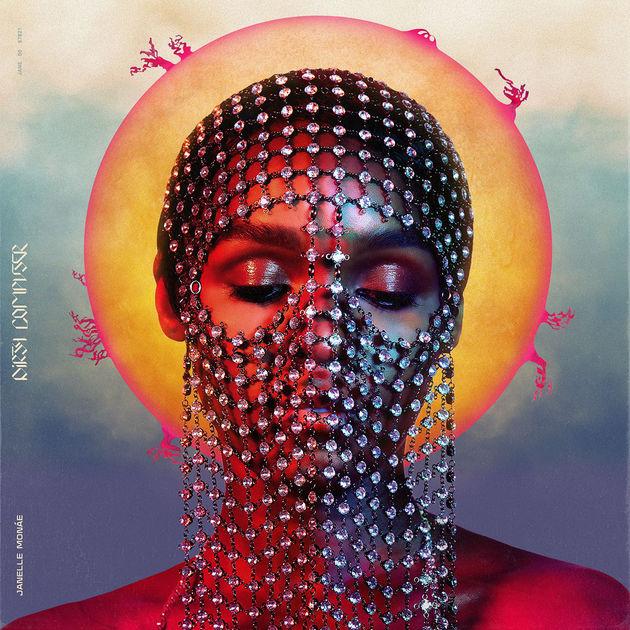What did we do to deserve Janelle Monáe? Dirty Computer - review
A record that will go down as a milestone not just as a work of art in its own right, but as the perfect celebration of queerness, female power, and self-worth

Your support helps us to tell the story
From reproductive rights to climate change to Big Tech, The Independent is on the ground when the story is developing. Whether it's investigating the financials of Elon Musk's pro-Trump PAC or producing our latest documentary, 'The A Word', which shines a light on the American women fighting for reproductive rights, we know how important it is to parse out the facts from the messaging.
At such a critical moment in US history, we need reporters on the ground. Your donation allows us to keep sending journalists to speak to both sides of the story.
The Independent is trusted by Americans across the entire political spectrum. And unlike many other quality news outlets, we choose not to lock Americans out of our reporting and analysis with paywalls. We believe quality journalism should be available to everyone, paid for by those who can afford it.
Your support makes all the difference.What did we do to deserve Janelle Monáe? Just over 10 years since the release of her official debut EP Metropolis, aged 21, she releases her third full-length album Dirty Computer: a record that will go down as a milestone not just as a work of art in its own right, but as the perfect celebration of queerness, female power, and self-worth.
“I am not America’s nightmare – I am the American dream,” she sings on “Crazy, Classic Life”; it works like a cool mirror image ahead of the hand-clapping, foot-stomping closer “Americans”, which is a joyful re-writing of the American anthem that calls for change; for people to celebrate the unique, the diverse, rather than reject it.
“Make Me Feel” has been hailed as a bisexual anthem but the way Monáe addresses sexuality in this song, and throughout Dirty Computer, seems to embrace it as something altogether more fluid. She literally bounces between The Dude and rumoured real-life partner Tessa Thompson in the “Make Me Feel” video, but also grabs the ass of her own clone.
Then in an interview with Rolling Stone published just before her album dropped, she explained to writer Brittany Spanos that she initially identified as bisexual, but later read about pansexuality – and is still open to “learning more about who I am”. That fluidity is echoed in the way one track melts sweetly into the next.
So Dirty Computer is as sexually liberal – and liberating – as it’s possible to be. At her album party in London, as she and a gorgeous all-female troupe danced to her music, the feeling was so overwhelming and beautiful to experience that this writer had tears in her eyes for most of it. Monáe knows all too well how it feels to be told to quash your sexuality, those aspects of your identity that make you unique, until it’s as though it has been drained from you. “Go on girl and use that sauce/if you don’t then that’s your loss,” she urges on “I Got The Juice”, which also shows off her considerable skills as a rapper. Her quick-fire delivery contrasts perfectly with Pharrell’s mellow, sexy murmur of a guest feature.
“Screwed” ft Zoe Kravitz segues into a spitfire of a rap on “Django Jane”; an ode to black female power and arguably Monáe’s most political track to date, which recalls wordplay akin to hip hop artist Rapsody. She spits the hair-raisingly triumphant shutdown: “Hit the mute button… Let the vagina have a monologue”, and a little later: “I cut ‘em off I cut ‘em off I cut ‘em off… like Van Gogh, now, pan right for the angle/I got away with murder no scandal.” The single “Pynk” is a slick, silky tribute to the female form, female sexuality, erotic expression, and the power to be found there; building on “Make Me Feel” but with a more tender gaze; she observes the colour pink in the vulva, vagina, brain, eyelids, fingers, tongue… in a reverent tone one would reserve for a deity.
Musical legends appear on Dirty Computer in various forms. There’s an interlude (“Stevie’s Dream”) which is taken from a recorded conversation between Monáe and Stevie Wonder, who she befriended after being forced to choose between playing with Prince at Madison Square Garden or Wonder in LA (Prince told her to pick Wonder). Brian Wilson contributes harmonies on the title track.
But it’s Prince himself who is most present – asides from Monáe herself of course – on this album. Indeed, the synth hook on “Make Me Feel” was so reminiscent of The Purple One that is was rumoured he wrote it himself (Monáe told Rolling Stone he didn’t write the track). And like Prince, Monáe is a “free mother**ker”, heard in the album’s occasionally psychedelic, trippy, polished instrumentation; the colours you envisage when she sings – deep purples, pinks, indigo – and even the equipment they used, some of which Prince recommended. “The most powerful thing he could do was give us the brushes to paint with,” producer Chuck Lightning – half of the funk act Deep Cotton – told Rolling Stone.
Dirty Computer is Monáe’s gift to young girls, boys, men, women and non-binary people who are ostracised just for embracing their true selves; to black men and women. It’s a message of love and hope to anyone who fears what is different, but who has capacity to learn and know better. And it’s seemingly a gift to herself, as well.
Join our commenting forum
Join thought-provoking conversations, follow other Independent readers and see their replies
Comments